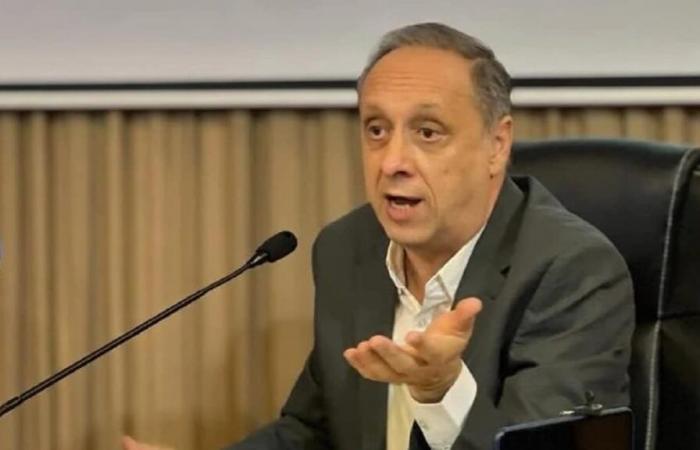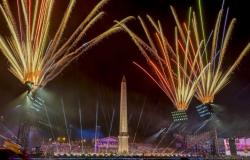
TRIBUNE. « A problem well posed is half solved. H. Bergson ».
In recent decades, Algeria has often found itself in the middle of political, diplomatic and media turmoil.
Barely a few months after acquiring its independence, it was the victim of a military attempt to amputate part of its territory by Morocco.
While she was healing her still bleeding wounds from a war of seven long and murderous years and while she aspired, after 132 years of colonization, to regain her freedom and to reintegrate herself into the history of nations, she was brutally recalled to order: to be sovereign is to have to fight against predation; Empires and resistance remain on the agenda.
She therefore began the path to her destiny, proud and determined, striving towards her objectives of progress and modernization of a country where ignorance, illiteracy, superstition and deprivation were accompanied by revolutionary ideals, justice and equity.
The political choices were obvious: single party, socialism, progressivism, centralism and anti-imperialist struggle.
Twenty-seven years later, the internal contradictions of the system became unmanageable. Absence of freedom, unique thinking, bureaucracy, nepotism, clientelism…, the evils due to the limits of this governance demonstrated the bankruptcy of the method.
Around the world, at that time, the winds had changed direction. Loudness et Perestroika Soviet concepts had become popular concepts.
Algeria made them its own. Democracy seemed to be at the end of a constitutional referendum. The backlash was violent. The torments of a nation, alienated by a dramatic secular history, would have the upper hand.
The resurgence of a traditionalist cosmogony had to come up against, head-on, the reality of a world for which it did not possess the codes. By having lost the living memory of its past, Algerian society doubted itself, its identity, its beliefs and its purpose. She plunged for a decade into fratricidal violence in an attempt to exorcise her troubles.
A tragic ordeal for her if ever there was one, she nevertheless ended up mastering her demons, and gradually got back on her feet. Matured by trials and better educated by the setbacks of many countries “ brothers », however, it did not renounce its fundamental references while realigning its objectives.
This is because it drew its resilience from a historical depth which went back at least several centuries before our era. And, despite ideological obscurations, Numidia slowly but surely re-emerged in the national imagination.
Indeed, two and a half centuries before our era, Massinissa had already reunified the central Maghreb into a state which had to face Rome and Carthage, the two rival Empires then dominating the Mediterranean.
Republic of Algiers
Despite the succession of invasions by different Empires, the people of the central Maghreb have always been able to maintain their deep identity.
After the adoption of Islam as a religion, several local dynasties successively inherited the state. Thus the ancestors of the Algerians were organized under the banner of the Rostemides, the Zirids, the Hammadites, the Almohads, the Zianides then, after an Ottoman regency, the Kingdom of Algiers.
The writings of historians of all periods and duly authenticated diplomatic letters prove, if anything, not only the existence but also the sovereignty of what was sometimes described, in its time, as the Republic of Algiers.
As for the borders between the central Maghreb and the western Maghreb, they have corresponded, over time, to the Moulouya River, currently integrated into the Kingdom of Morocco about thirty kilometers from the Algerian-Moroccan border. In view of history, if there were to be a correction of the borders it would therefore be for the benefit of Algeria!
As for the South, very sparsely populated given the hostility of its nature and its demographic poverty, it was for a long time a semi-open space of transit between the North and the Sahel.
“The Moroccan allegations are completely unfounded”
However, the scattered tribes who lived there had always pledged allegiance to Algiers. It is therefore not France which created Algeria and which gave it its name, as active propaganda propagates.
The Moroccan allegations and certain Franco-Zionist and far-right currents denying the existence of an Algerian State and Nation are completely unfounded.
If there was not a nation-state as it was constituted in European countries from the 17th century and for some of them only in the 20th century, it is ridiculous to deny the existence of Successive states of the central Maghreb.
The people rooted in this region were organized on the model of the entire geopolitical region, just like in the Western Maghreb where different dynasties had also established roots there.
Furthermore, the negationism of certain Western anti-Algerian pseudo-historians and Moroccan propagandists regarding the Algerian nation in ancient history should then logically extend to certain European nations which were only born at the end of the 19th century. century like Germany (1871) or Italy (1861) and even for several of them after the collapse of the Austro-Hungarian Empire (1918), without forgetting the countries which were born out of nothing on territories that they had never occupied before except in their mythology of the promised land!
The form of the nation-state is therefore not a historical-political benchmark for measuring the legitimacy of today's nations. In reality, this negationism is an ideological narrative to justify predatory appetites.
In a world where international law has just collapsed and which has lost all operability, the field is free for all predators. He will also be free for self-defense!
Algeria will know how to live and will remain, without a doubt, Algerian as it has always been!
To be continued: What sovereignty for Algeria?
*President of Jil Jadid
Important: The columns published on TSA are intended to allow readers to participate in the debate. They do not reflect the position of the editorial staff of our media.





